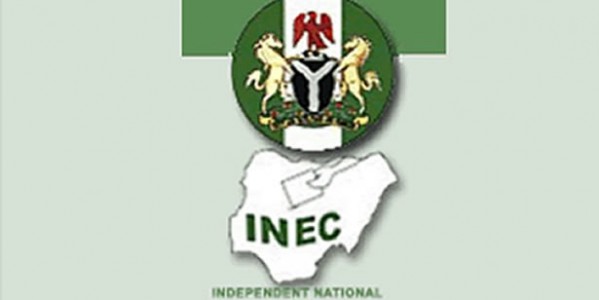…. Says Jonathan’s Concession Gave Credibility To 2015 Election
The post election report has revealed that the Independent National Electoral Commission (INEC) got a total sum of N114, 058, 943, 747. 48bn for the 2015 general elections.
The sum of over N108.9bn was appropriated for the Commission by the Federal Government between 2014 to 2015, while assistance from development partners was N5, 207, 260, 433.55bn.
The N5.2bn from the development partners, came through sponsorship of workshops, seminars, conferences, enlightenment programmes and engagement of consultants, the report explained.
Besides, the report also declared that the decision of former President Goodluck Jonathan, to concede power gave credibility to the 2015 presidential election.The report further made a case for evoting ahead of future elections, advocating also for the establishment of Electoral Offences Commission and Tribunal.
The unvieling of the report was the last official function carried out by INEC acting INEC chairperson, Mrs. Amina Bala Zakari as President Muhammadu Buhari announced a new henchman, Prof. Mahmood as the substantive INEC Chairman on Wednesday.
The 232?-page document with nine chapters, according to INEC, is the first in the history of Nigeria that is produced three months after an election.
The report stated that “more specifically, the 2015 general election was funded from to major sources; the consolidated national budgetary appropriation; and assistance from development partners.”
The breakdown shows that N15.7billion was appropriated for the presidential/governorship/runoffs/other rescheduled Elections and N2.5bn was appropriated for Procurement of utility and special utility vehicles.
Printing of Ballot papers was put at N8.4bn while ballot boxes, N5.02bn. N1.68bn was appropriated for Voting cubicles, while insurance for Adhoc and commission staff got N1.2bn.
Also, N14bn was appropriated for honoraria for Adhoc staff, transport for Adhoc staff was N4.6bn. While feeding of security officials was put at N1.8bn, feeding of election officials was N1.25bn.
The report further revealed that monitoring of political primaries got an appropriation of N600m while monitoring of elections (local and overseas) got N500m.
The continuous voter registration got N4.5bn, the smart card readers, training and mock elections to test SCRs was said to have gulp N4.179bn. Electoral services wide vote got N2.5bn while professional fees and expenses for external solicitors got N2.4bn.
The funds that came in from Development Partners for the 2015 elections, according to INEC report was $21,316005 and £209,9000 about N5,207, 260, 433.55.
The amount pooled from the Ford Foundation, United Nation Development Programmes (UNDP); European Union and the International Foundation for Electoral System (IFES) and the Open Society Initiative for West Africa (OSIWA).
The report also noted that the funds from the development partners were targeted at specific electoral programmes aimed at promoting the successful conduct of the elections.
Some of the grants include: $1million grants by the Ford Foundation for Business Process Re-design (BPR) and Voters Education.
The UNDP/DGD gave a grant of $1,073,005.67 for Election Management System EMS and Training for Security Officials; another $17,552,236 for Sponsorship of INEC Engagement with relevant and strategic stakeholders, etc.
The Open Society Initiative for West Africa extend a grant of $84,764.00 to INEC for prosecution of Electoral Offences and Gazette of Electoral Regulation.
Civic Education and Election Monitoring through Yar’adua Centre was funded by a grant of $1,600,00 from the Mac Arthur Foundation.
Another €209,900.00 for preventing Conflict and Electoral Violence support to the Independent National Electoral Commission came from International IDEA.
The commission said the monies were converted at the prevailing exchange rate of N165 and N200 for dollar and Euro respectively.
On the credibility of the 2015 general elections, the reported stated that “What stood out, in bold relief, about the 2015 general elections is that, for the first time since 1999, the outcome of the presidential election, held on 28th March, 2015, were uncontested in court.
“This can be transparent and credible and second, the historic concession made by the incumbent president, even before the official declaration of the presidential election result by the commission.”
the report also thumb up for the agreement between the commission and the road transport workers for the hitch free transportation of electoral materials.
“The Memorandum of Understanding (MoU) entered into with the National Union of Road Transport Workers (NURTW) was observed more in the breach.
“Some of the state offices did not activate their Registration Area Centre (RACS) and Super RACS, as directed by the commission. These two challenges led to the late commencement of polls in s?ome PUS and threatened the integrity of the elections, in spite of the patience, understanding and resilience Nigerians demonstrated on election day”
Zakari, in her remark said that the number of petitions which stood at 1290 after the 2007 elections went down to 611 after the 2015 general elections.
She said: “The number of election petitions after the 2007 general elections stood at a whopping 1290; after the 2011 general elections, the number came down by almost half, with a total of 732 election petitions filed; following the 2015 general elections, the number of petitions further scaled down to 611. It is therefore expected that the incidence of nullified elections will be correspondingly low.”
United Nations Development Programme (UNDP) Opia Mensah,in his remark commended INEC for seeing to the first transfer of power from ruling party to opposition in Nigerian, adding that the 2015 was no fluke but a concerted effort by INEC and its partners.
He also urged the commission to sustain the tempo. “Believe that the high standard will be sustained and consolidated for the benefit of the citizens of Nigeria,” he said.
On the report he said it will serve as reference point for future elections. If you don’t tell your story someone else will choose to tell it.
-FRONTIERS NEWS









